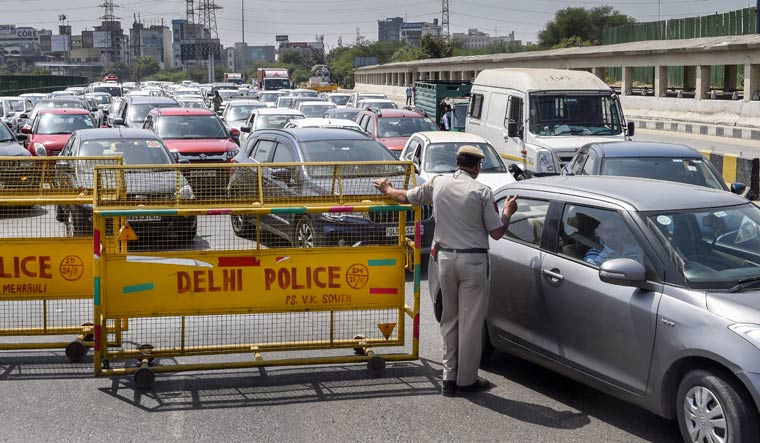The Delhi government has asked district magistrates to track 35,000 foreign returned people who have been staying in Delhi since March 1. The movement of these people and the places they visited in the last one month are causing worry to the government. As an urgent measure, the Delhi government has directed all district magistrates in the national capital territory of Delhi to undertake a thorough verification exercise through their “surveillance teams” and ensure that all such persons remain in home quarantine for 14 days.
Sources said that the local authorities will undertake such surveillance measures by roping in civil and law enforcement bodies—like Delhi Police, civic bodies and even civil defence personnel—who will identify these persons and, their places of residence, and carry out checks to ensure the rules are being adhered to. The information regarding their residence is available through their passports, said an official.
The Delhi government has invoked the Delhi Epidemic Diseases COVID-19 Regulations, 2020 under the Epidemic Diseases Act, which says all foreign nationals will have to strictly comply with directions of home quarantine without fail. Even the contacts of all such persons should strictly remain under home quarantine for 14 days.
''Persons who have been diagnosed as infected with COVID-19 shall mandatorily remain in isolation facility of the hospital and shall be allowed to leave the premises only after being discharged by the treating doctor.”
The focus of the government in the capital city is to ensure that the regulations framed by it are strictly adhered to and a close watch is kept on anyone who is flouting the rules.
The foreign returned persons can pose a huge threat to the city population, said an official, explaining the detailed guidelines being rolled out for them. Any person who is found flouting the directions shall be prosecuted and punished with imprisonment or fine or both under Section 188 of the Indian Penal Code as explained in Section 3 of the Epidemic Diseases Act, 1897, says the government circular.
The Section 3 of the Epidemic Diseases Act talks of penalty on any person found to be disobeying any regulation or order made under the law and would be deemed to have committed the offence under the Section 188 of IPC.
The IPC section deals with disobedience of order promulgated by a public servant, which tends to cause obstruction or risk or injury and is punishable with one month jail term, and if such acts cause danger to human life, health or safety, it can invite a jail term upto six months or fine or both.



